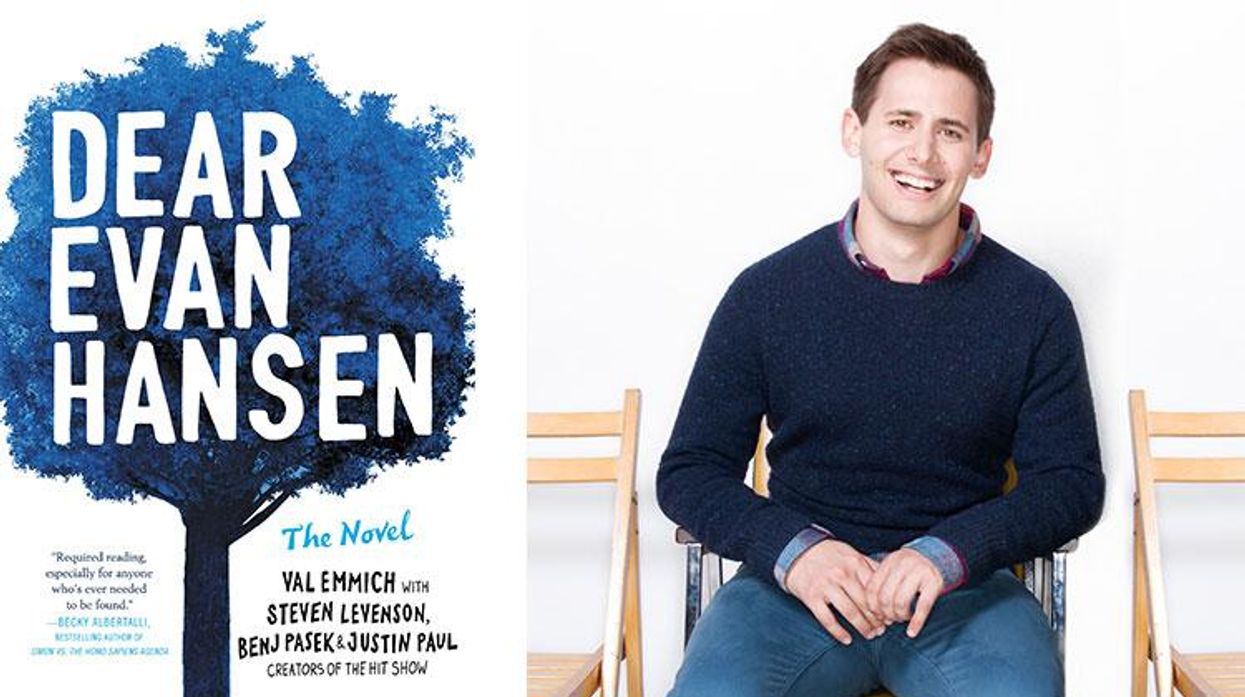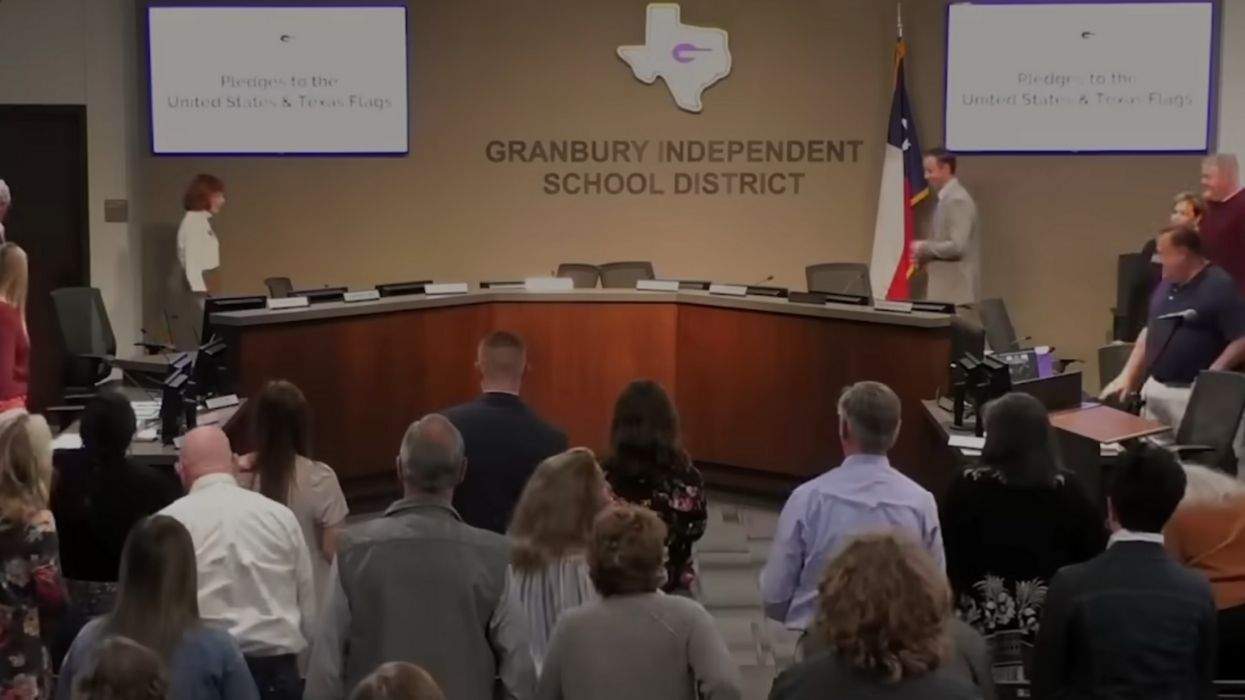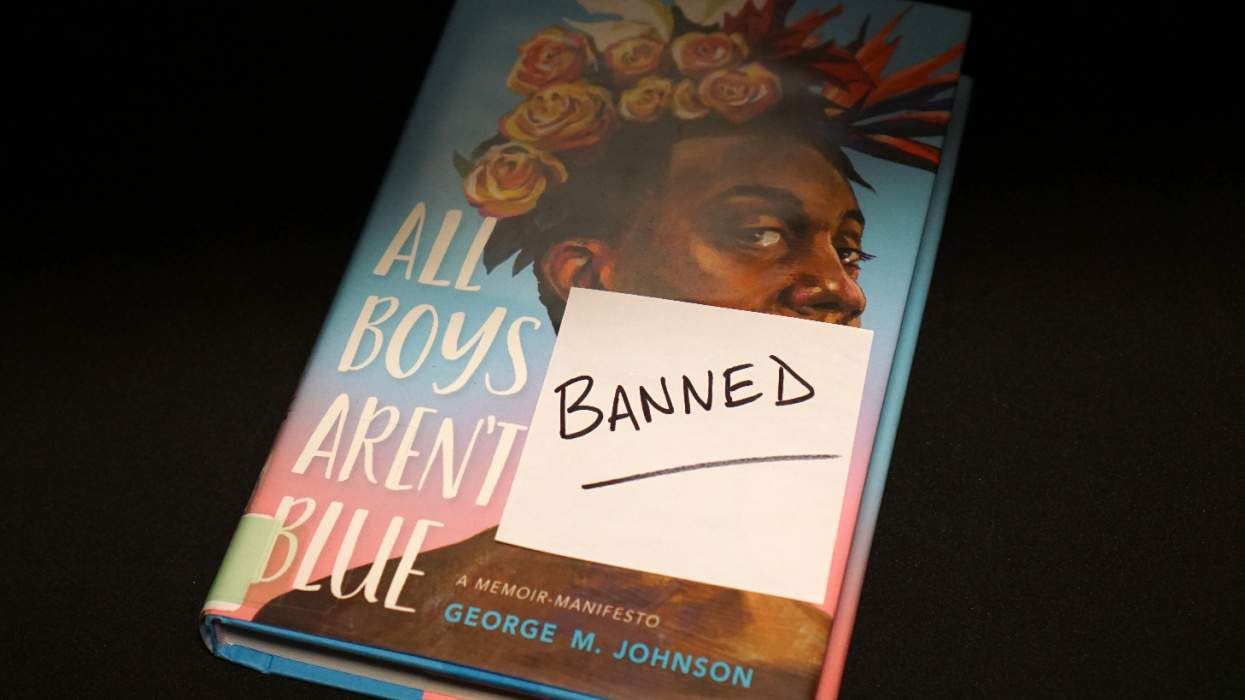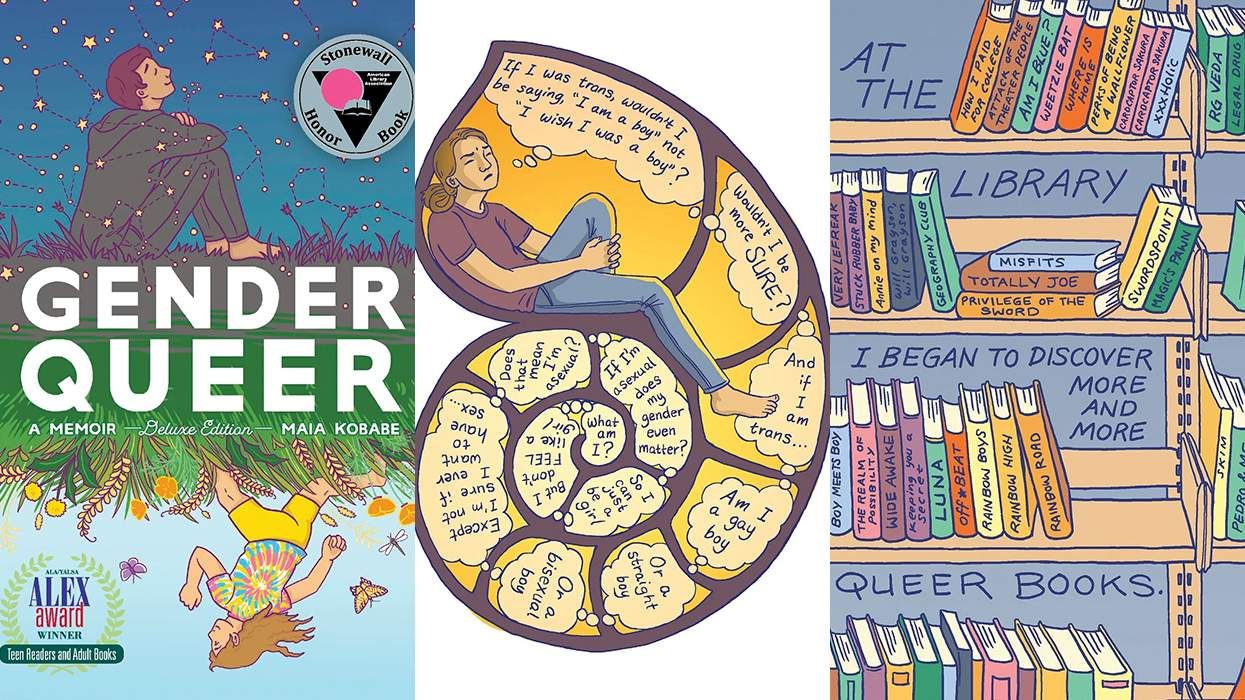Fans of Dear Evan Hansen will find much to learn about the characters they love in the novel adapted from the popular Broadway musical -- which centers on how the suicide of a teenager, Connor Murphy, transforms the life of his high school classmate, a fellow outsider named Evan Hansen.
This central thrust of the novel is largely the same as that of the play. Two actions -- Connor, before his death, signs Evan's cast and then takes a letter he writes -- lead Connor's family to mistakenly believe that the two are close friends. Hoping to bring comfort to the grieving, Evan indulges this fiction and then finds himself entangled in a growing web of lies.
The book of the same name -- written by Val Emmich and the creators of the show, Steven Levenson, Benj Pasek, and Justin Paul -- delves more into Evan's backstory, including scenes from his summer as an apprentice park ranger, when the breaking of his arm led to the fateful cast. The book provides the reader other meaningful scenes that are mentioned but not present in the play, such as the night Connor died of a drug overdose in a hospital -- where Evan's mother, a nurse, was on duty.
But perhaps most significantly, the novel gives Connor -- whose role in the musical is more of an inciting incident than a major character -- a fully realized voice. Throughout the story, Connor's ghost lingers to observe how the living respond to his death. Full chapters of the book, written in the first person, are devoted to Connor's commentary as well as the memories of events that led to his suicide. His presence leads the story into supernatural territory. A shadowy figure is seen from a window; later, an unseen force wills a character out of harm's way.
Emmich is the primary writer of the young-adult novel, but the end result is a collaborative effort. Levenson, who wrote the musical's book, sent Emmich excised scenes from the stage version of Dear Evan Hansen, and songwriters Pasek and Paul forwarded cut songs. The three creators also urged Emmich to take creative liberties but weighed in with their own ideas for alteration and expansion.
Pasek, in an interview with The Advocate, praised the opportunity to "reexamine" the characters he helped create for the stage "in a joyful and sometimes scary way." The novel gives Connor, a character who dies early on in the story, the ability to be fleshed out "in a way that we couldn't at all onstage."
"When we expanded the book, it was really interesting and fun for us to get to explore the character of Connor," said the gay writer. "We got to weave in more LGBT characters, which was important for us -- particularly me."
In fact, many of Dear Evan Hansen's queer fans -- who have long found resonance in the musical's lonely lead character -- know the importance of Connor's identity. Lesbian, gay, and bisexual young people are almost five times more likely to attempt suicide than their straight peers. And surprisingly, for a musical that addresses suicide, there are no clearly LGBTQ characters -- although a suicide-prevention nonprofit Evan begins, the Connor Project, owes its namesake to a real-world LGBTQ counterpart, the Trevor Project.
Queerness, when addressed in the musical, is touched upon through song and humor. In "Sincerely, Me," for example, Evan falsifies an email exchange between himself and Connor in order to offer proof of their secret friendship to Connor's family. The lyrics, self-aware of the romantic innuendo of this situation, include "Our friendship goes beyond / Your average kind of bond / But not because we're gay / No, not because we're gay / We're close, but not that way / The only man that I love is my dad / Well anyway!"
The Dear Evan Hansen novel moves its queer themes into the light. It (spoilers ahead) reveals that Connor did indeed have a secret relationship -- although it was not with Evan. "I basically spent my whole life alone. Until I met Miguel," Connor recounts in remembrance of a classmate from boarding school, adding, "He was the first person I'd known who was openly and proudly gay. (I was somewhere in between. Fluid. The way I thought about both girls and guys. Back then, I had only begun to put those thoughts into action.)"
This coming out to the reader officially brings LGBTQ representation to the world of Dear Evan Hansen. But moreover, the novel presents more opportunities to show the similarities between Evan and Connor and their shared experience with loneliness. It's a feeling that many LGBTQ people have struggled with, including Pasek. But it's also a theme that has made the musical resonate with so many fans from every background.
Dear Evan Hansen is "about a boy who feels alone and invisible. It's about the need to be seen and be heard and feel like your voice matters. I absolutely felt that way for a very long time and still feel that way sometimes," Pasek said. "The gay identity -- you're living in a world where the world is basically telling you that you're not enough. And the end of the show is really a message for anyone who feels that way."
Pasek then repeated the affirmation recited by Evan at the story's conclusion: "Dear Evan Hansen, Today is going to be a good day. And here's why: because today, today at least you're you and that's enough. "
"To me, that's the journey," Pasek said.
The subject matter in Dear Evan Hansen hits close to home for Pasek, who knows firsthand the pain that suicide can cause. He lost two LGBTQ loved ones after the show's original 2015 production in Washington, D.C. "It definitely is an epidemic, and it definitely influenced how I looked at the show and it's definitely something that we want to address," said Pasek, who stressed the importance of community, family, and found family to helping those in need.
Community is a primary theme in Dear Evan Hansen, whose central character is looking for love -- albeit through morally questionable methods. Evan's nonprofit, the Connor Project, shows how the internet can be used for those seeking support. Evan's relationship with Connor may be a lie, but the great need for human connection as a means of coping with life's hardships remains the truth at the heart of the story, one that that book brings home by telling Connor's story and pain in his own words.
And it isn't only young people who need help.
"Even when you're in your late 20s in your early 30s, we live with these scars. We're always trying to heal ourselves," Pasek said. "Sometimes you're able to, and sometimes you're not."
"I have suffered from depression and anxiety," he admitted. "I definitely have been in those dark places. I think that finding community is the only sort of remedy, and it was a lifeline that I think most of us need to rescue us when we're in those wells."
A key reason for releasing a novel version of Dear Evan Hansen was to expand that community of support beyond Broadway. "The reach of the show was beginning to be bigger than anything that we expected," said Pasek, who testified to the flood of fan mail received by the show and its original star, Ben Platt. "It was bigger than New York. And it was bigger than people that were even seeing the show, once the soundtrack went out into the world and fan art was being created."
The need for the message of the play was apparent. Pasek recounted that one note to Platt read, "Thank you for helping me to not let go."
"We wanted to create something that you could hold in your hands," said Pasek of the novel. "It could be a conversation starter between parents and kids, between kids and kids, between parents and parents, and that was something ... that gave the story to more people."
While the Tony Award-winning musical is no longer confined to New York -- a 60-city tour is ongoing -- the book presents a more affordable and accessible tool for people all over the world. And by all metrics, it's a hit -- the novel has spent 16 weeks on The New York Times best seller list in the YA category.
Pasek, despite his struggles, has also thrived. He and his songwriting partner, Justin Paul, are successes in the entertainment industry, having won awards at the Tonys, Golden Globes, and Oscars for their songwriting in Dear Evan Hansen, La La Land, and The Greatest Showman.
However, one of the greatest honors, said the 33-year-old, is seeing how his words can help a younger generation. "I was once one of those young lonely kids in his bedroom," said Pasek. "I'm very moved when I see kids who embrace anything that we've written and use it as a means to express and connect with other people."
Dear Evan Hansen: The Novel is now available on Amazon and in bookstores.
If you are a trans or gender-nonconforming person considering suicide Trans Lifeline can be reached at (877) 565-8860. LGBTQ youth (ages 24 and younger) can reach the Trevor Project Lifeline at (866) 488-7386. The National Suicide Prevention Lifeline at (800) 273-8255 can also be reached 24 hours a day by people of all ages and identities.















Charlie Kirk DID say stoning gay people was the 'perfect law' — and these other heinous quotes
These are some of his worst comments about LGBTQ+ people made by Charlie Kirk.